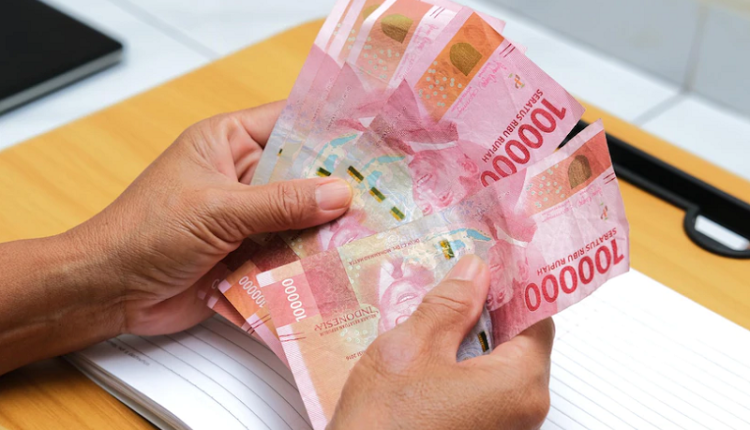BLT and BSU BBM Inflation Mitigation Efforts
By: Panji Saputra)*
In order to reduce the impact of inflation in Indonesia, the government distributes Direct Cash Assistance (BLT) and Wage Subsidy Assistance (BSU) for fuel oil (BBM) on target along with many other strategies as concrete evidence of the government’s presence among the people.
The fuel price adjustment that has been imposed by the government is, in fact, unavoidable. The reason is that so far it turns out that the provision of fuel subsidies and compensation with the old scheme has not been targeted at all in the field because it is actually enjoyed by people who are classified as capable.
The President of the Republic of Indonesia, Joko Widodo, said that more than 70 percent of the subsidies that the government has disbursed for energy are enjoyed by groups of people who can afford it, namely those who own private cars. In fact, according to him, the subsidy should be prioritized so that it can be distributed to the poor.
As a result, the State Revenue and Expenditure Budget (APBN) continues to be burdened because it has to continue to provide subsidies, even though it is not at all on target. Therefore, in order to reduce the additional burden of subsidies and compensation, the government finally took the initiative to carry out a policy of adjusting fuel prices.
Indeed, all of these policies are not an easy choice, because on the other hand, world oil prices continue to increase and the government continues to work on how to reduce fuel prices so that they can be affordable by the public. For information, the fuel subsidy and compensation budget in 2022 alone has tripled, from the previous Rp 152.5 trillion to Rp 502.4 trillion. So that it is fitting to find a solution immediately, namely by diverting fuel subsidies and making price adjustments.
However, it is not just about adjusting it, but the government is also trying to stay present in the community and change or reallocate funds so that they can be used more accurately on target by imposing direct assistance schemes to affected and vulnerable communities so that all current subsidies can be much more targeted and effective. according to the principle of justice.
Furthermore, the government itself has also made a number of very careful calculations regarding the impacts that will occur when the fuel price adjustment has been made, along with what efforts can be made to reduce all these impacts.
Regarding the increase in inflation, as written on the official website of the Directorate General of Treasury of the Ministry of Finance of the Republic of Indonesia, that there will be an increase in inflation of around 1.88% to 2.2%. As a result of this increase, it is also estimated that the outlook in 2022 will be 6.3% to 6.7%, which is actually still relatively moderate even when compared to how inflation is rising in many countries.
In order to keep the inflation rate from soaring, the Central and Regional governments continue to work together with Bank Indonesia (BI) to control food prices, so that they will be able to anticipate the impact of inflation propagation.
Not only that, but another strategy carried out by the government is to focus on protecting the poor and vulnerable by providing additional social assistance of up to Rp. 24.17 trillion to reduce poverty. This includes the government will continue to ensure that the fuel stock remains safe even until the end of the year so that there will be no shortage of supply and will continue to carry out strict supervision regarding the distribution of fuel to the public.
In order to reduce the negative impact that may affect the lower middle class, especially the 40 percent of households, the government has prepared social support in the form of direct cash assistance (BLT), Wage Subsidy Assistance (BSU) including local government support through 2% transfer funds. General (DTU).
The BLT that has been prepared by the government will be distributed to as many as 20.65 million Beneficiary Families (KPM) with the amount of Rp. 150 thousand for 4 months. Then for the distribution of BSU, it will be given to 16 million workers with salaries below Rp. 3.5 million and given once at a rate of Rp. 600 thousand. Meanwhile, local government support through 2% DTU is used for social protection, job creation and also subsidies for the transportation sector such as motorcycle taxis, public transportation, fishermen to MSMEs. It is proven, with the provision of social support that has been carried out by the government, in fact the poverty rate in Indonesia has been successfully reduced to 0.3%.
Regarding the distribution scheme for all social assistance, the Minister of Social Affairs, Tri Rismaharini said that his party cooperated with PT Pos Indonesia because it was able to reach the wider community down to the Kelurahan level and could even reach remote areas.
All efforts that have been made by the government, ranging from providing BLT and BSU to people in need to cooperating with other institutions in the distribution of social support are indeed a form of government presence for the people, besides that they also have a very positive impact on being able to reduce the impact of inflation in Indonesia.
)* The author is a Contributor of the Nusantara Reading Room
